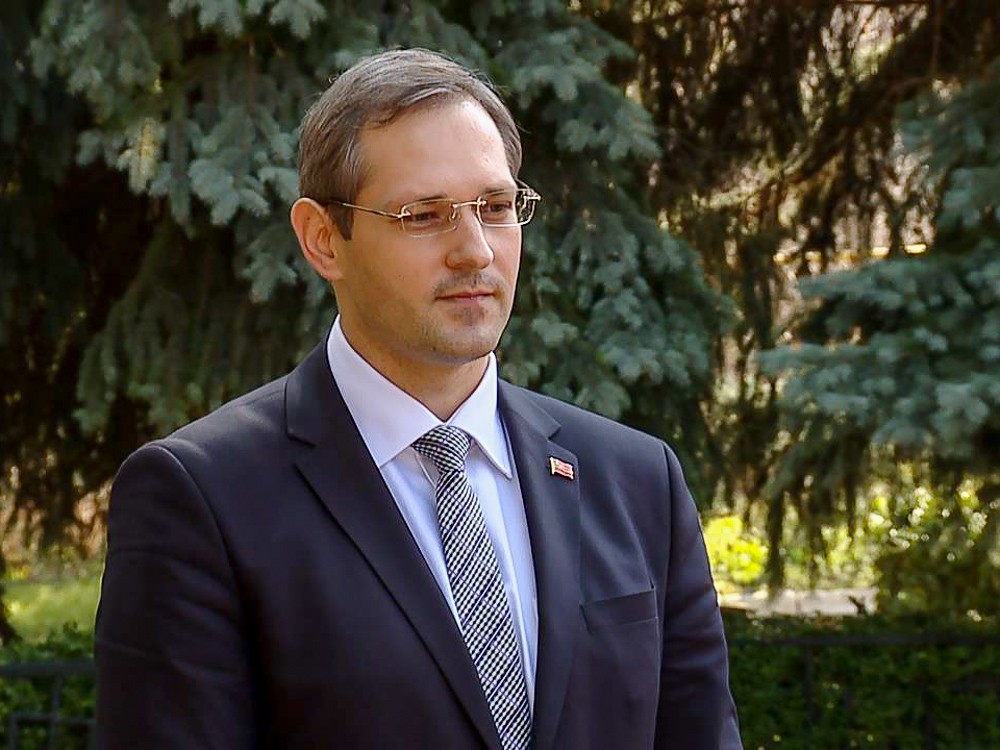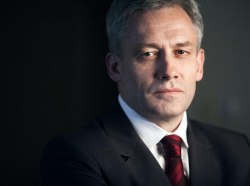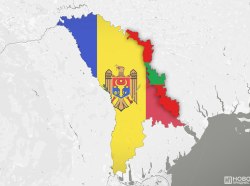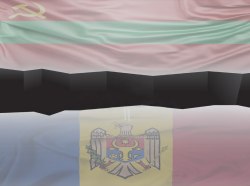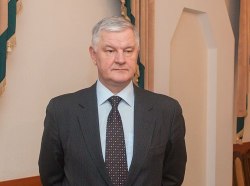NP: Mr Ignatyev, on 2 and 3 June you took part in a 5+2 format round of negotiations, how could you characterise its results?
I believe the very fact that the 5+2 negotiations took place is a very important step forward as they had been preceded by a considerable two-year pause which did not allow us to make use of the potential of the international 5+2 format and proceed with a range of problematic issues. The Moldovan side took advantage of this pause to increase pressure on Pridnestrovie on various fronts. First of all, this includes a bulk of politically motivated criminal cases initiated against Pridnestrovian citizens, including officials. This also refers to a number of other issues related, for example, to the motor car and railway transportation spheres, as well as other important aspects.
In fact, our Moldovan partners made use of this pause to increase pressure on Pridnestrovie and worsen its socio-economic situation. Therefore, I'd say the Protocol laying out further guidelines is the main result of the meeting in Berlin. I'd call it a road map as it emphasises the necessity of promptly resolving a whole number of pressing socio-economic issues. We did not only confirm the fact these problems did exist, worsening Pridnestrovian residents' lives, but also enlisted the international observers' support for solving these problems gradually, but at the same time in concrete terms.
It should be noted that Pridnestrovie has substantive proposals to many issues, which were put on the negotiating table long ago. For a long time the Moldovan side has been ignoring our proposals. This applies to a draft protocol solution to the motor car issue, which is comprehensive, referring to both truck and cars, as well as the recognition of graduate diplomas issued in Pridnestrovie. There is an initiative concerning criminal cases, and it was stipulated in this protocol that the sides should not only exchange the lists [of politically motivated criminal cases], but also find a prompt solution to this problem in general. That is why we believe that the results of the 5+2 meeting is an important step forward, as viewed by Pridnestrovian citizens.
NP: It was said during the briefing that the international partners had played an important role in organising this meeting. Do you think this round of negotiations would have been possible but for their help? Do our foreign partners hear us?
Both the Russian Federation and the current German OSCE chairmanship performed very serious work. I want to note that the Pridnestrovian side also took active steps because we did not only work on principal problematic issues, but also proposed specific initiatives, elaborated compromise proposals. In fact, we have what to talk about and what to discuss.
Russia's proposals were certainly the main ground of the permanent conference. Many provisions which had been unofficially proposed on a non-paper basis were virtually set down in the protocol. This has a positive potential because, as I've already mentioned, the document stipulates the parameters of [a solution to] the criminal prosecution problem, despite the fact that my Moldovan counterpart used to say these criminal cases had never existed.
We argue that we should not only exchange the lists [of criminal cases], but also resolve this problem. We also emphasise that it is necessary to avoid taking coercive measures against Pridnestrovian officials and exerting pressure on the Pridnestrovians travelling via Kishinev airport.
I believe that the most principled aspect of the protocol is a provision saying that all decisions should be made at the negotiating table. One of the basic propositions made by the Russian side was the elaboration of a guarantee mechanism that would secure the implementation of decisions accepted within the framework of negotiation process. The protocol confirms the sides and international participants' commitments to work towards working out and enhancing the mechanism of guarantees. This is the key moment Pridnestrovie keeps talking about since the absence of such a mechanism allows the Moldovan side to avoid meeting their commitments, take unilateral actions, torpedo previously signed agreements and, in general, leads us, as a colleague of ours said, to a Catch 22 situation. To escape it, we do not need bare declarations, but rather working guarantees.
Another equally important provision stipulated in Russia's non-paper proposal suggests the refusal of any unilateral actions worsening the sides' socio-economic situation. The provision is included in the protocol's Paragraph 7, indicating that any decisions should be made at the negotiating table only. This means that any unilateral steps, which are presented by the Moldovan side as certain attempts to «improve» the situation of our citizens, are illegitimate from the point of view of the negotiation process and the legal foundations of this mechanism.
This means that our Moldovan partners must not only refuse any unilateral actions, but obligatorily coordinate all their actions with the Pridnestrovian side. There is no alternative to a dialogue, and this protocol has reaffirmed this maxim.
NP: The protocol signed in Berlin stipulates that the sides must draw up and coordinate prior to the Bavarian conference mechanisms of solving problematic issues. How is the work going on in this area?
I'd like to focus on the principle, which has been laid in the protocol, that solutions should be found prior to the Bavarian conference. There is an exact period of time during which we must really confirm our readiness to work. This is a great and positive step forward for Pridnestrovie as our country, as I've already mentioned, has specific draft solutions in all areas.
Referring to graduate diplomas, our proposals are based on the recommendations given by EU experts back in September 2014. Referring to the motor car issue, our proposals fully comply with the EUBAM's recommendations, which, as far as I know, is unacceptable for Moldova.
On other issues, including ecology or telecommunication spheres, it was clearly said we should reach concrete solutions within a specific period of time. In other words, we don't have much time left to come to agreement on important issues of great concern for our citizens.
The upcoming Bavarian conference is not a certain result of our work; it is just another stage, a move to a new level because we can also touch upon some other questions there which were not discussed during the past 5+2 meeting. In my view, determining time parameters is a very important aspect, a moment of truth which will show the true negotiability of talks participants.
NP: Will you manage to put a sufficient number of draft solutions on the negotiating table?
We'll do our best to reach specific agreements. For example, the protocol focusses on ecology and specific terms merely because the draft solutions are almost coordinated (the sides are to coordinate a number of protocols in the sphere of ecology by 15 June, ed.). There are no crucial contradictions.
But I repeat we discussed other problems as well, such as the recognition of graduate diplomas, which would allow our graduates to continue education, make academically mobile, enable them, after all, to find a job in other countries.
We also discussed the problem of motor cars registered in Pridnestrovie, which is especially sensitive for our citizens now, in the holiday season. Therefore, while we agreed to settle this problem as soon as possible, the Pridnestrovian side also issued an official statement to the international participants of the 5+2 format, requesting them to consider the possibility of providing access of our motor cars with the PMR's licence plates to the territories of their states, including EU countries. We believe that this positive measure may become an element which will both ease Pridnestrovians' lives and at the same time push the sides, our Moldovan colleagues in the first place, to finding a prompt solution to this issue.
NP: Have this proposal received any response?
Given that we issued it at Berlin's meeting, it will take time to study and respond to it, but everything corresponds so far to the general atmosphere which prevailed during our meeting — commitment to results. The period of declarations and soothing tones is over. We should seriously work on the first set of problems, which are exceptionally socio-humanitarian.
I'd like to stress that in during the latest negotiations nobody raised political issues relating to status elements and other similar aspects, which also signals that the atmosphere of 5+2 meetings has been improving.
NP: What will be the format of drafting specific solutions? What platforms will be used?
The meeting format is established — expert groups. Meetings in this format have recently taken place with the involvement of political representatives of Moldova and Pridnestrovie. Seems to me, such meetings are a good opportunity to help, first of all, Moldovan experts to solve technical issues because, in our view, many of them have mutually beneficial and efficient draft solutions. Nothing but political will is required; therefore, the ball is on Moldova's side.

